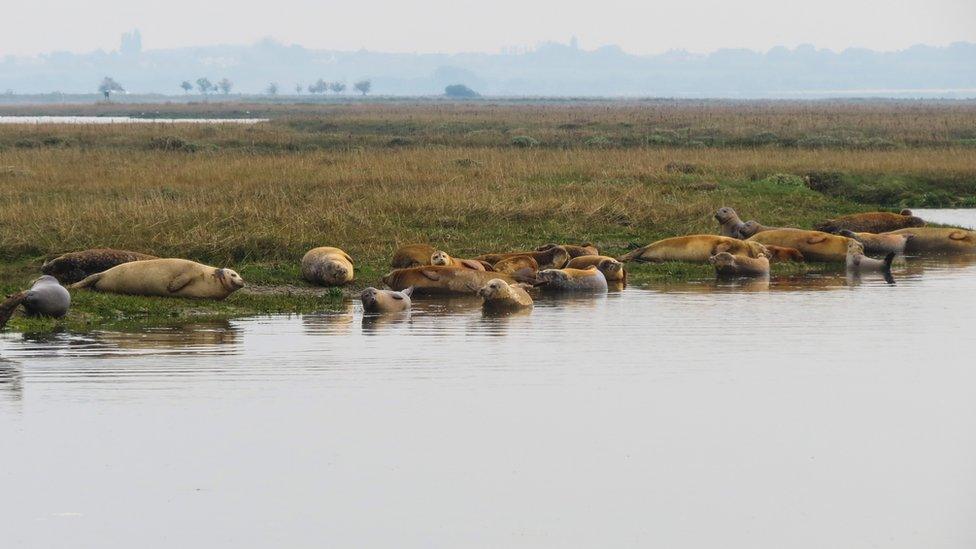Wildlife Trusts habitat projects aim to tackle climate crisis
- Published
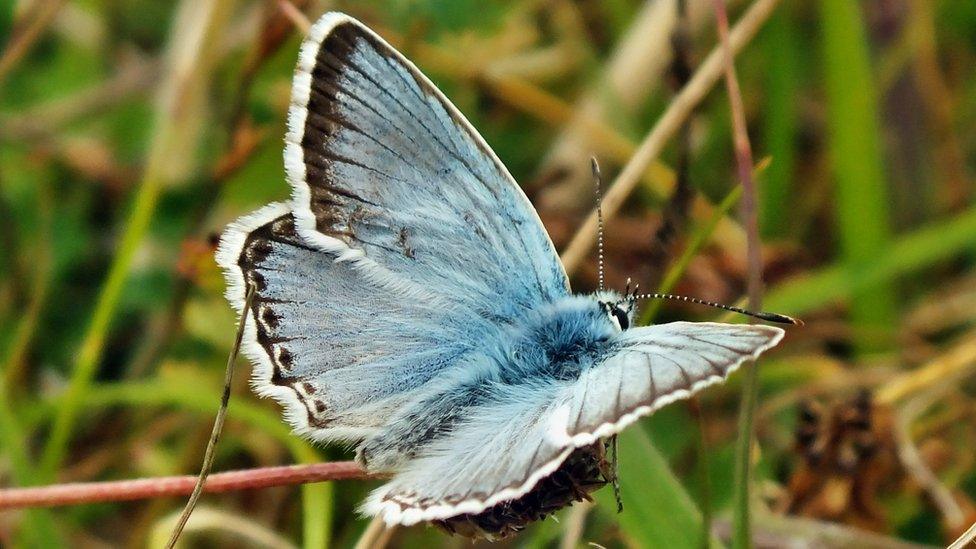
The scheme hopes to help three butterfly species thrive in Bedfordshire, Cambridgeshire and Northamptonshire - the chalk hill blue (pictured), small blue and Duke of Burgundy
Wildlife projects to help tackle the effects of climate change and restore animal habitats have been unveiled by a charity.
The Wildlife Trusts, external schemes include improving fragmented wetlands across England and Wales to pave the way for reintroducing more beavers to the UK.
Coastal saltmarshes in Essex will be also expanded and and peatland habitats in five counties restored.
Funding of £2m has been provided by the People's Postcode Lottery.
The "nature-based solutions" will help the UK in its goals to cut carbon emissions to "net zero" by 2050, The Wildlife Trusts said.
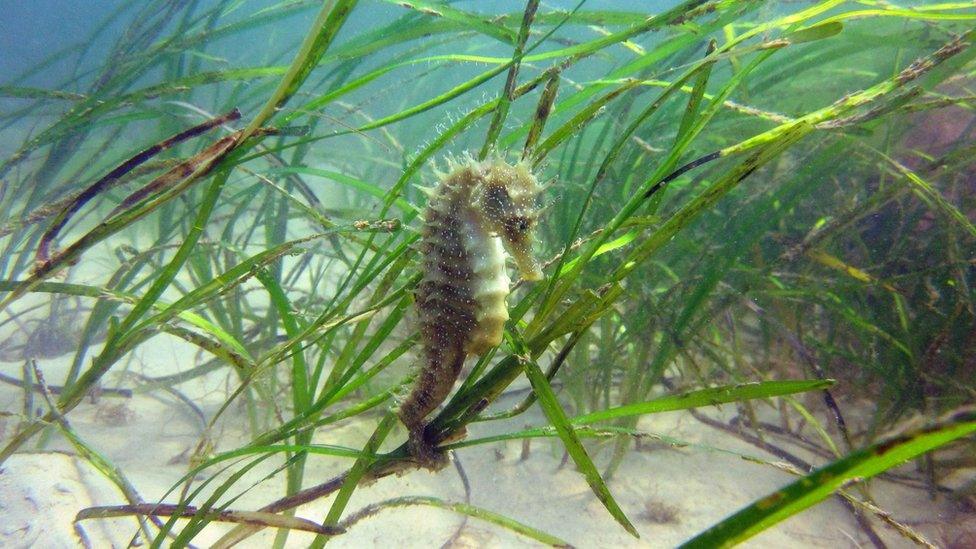
A seahorse amongst seagrass off the Sussex coast
Chief executive Craig Bennett described nature as "our biggest ally in limiting global temperature rises".
"We need to cut emissions at source to fight climate change and we can also have a big impact by restoring nature because wilder places lock up carbon," he said.
"That means repairing the amazing habitats in our seas, rewetting peatlands, dramatically changing how we manage farmland, rewilding landscapes, and bringing back habitats that have been lost."
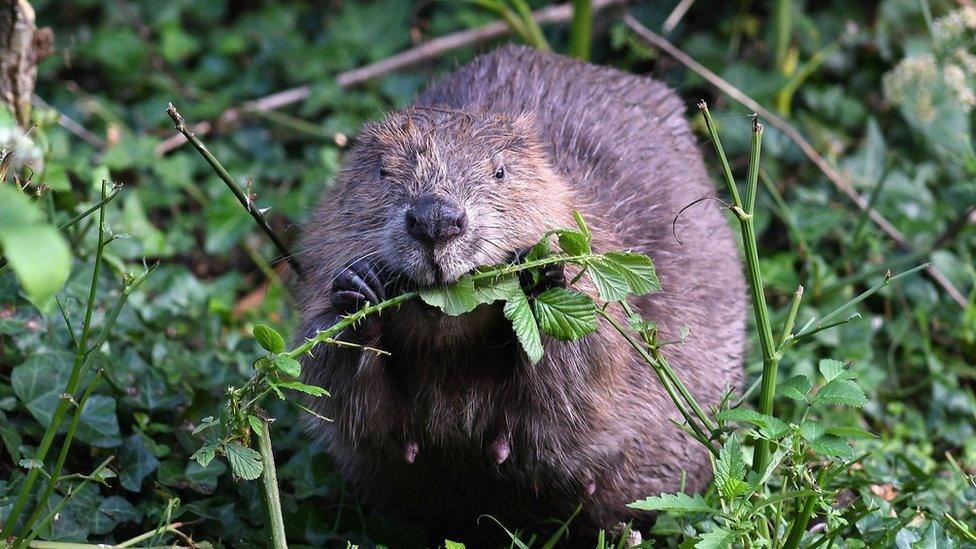
It is hoped beavers will flourish as a result of wetlands and peatlands being improved across the Meres and Mosses of the north-west Midlands area and Wales
The 12 "high impact" projects will focus on:
Creating habitat features to help temperature-sensitive butterflies in Bedfordshire, Cambridgeshire and Northamptonshire
Restoring fragmented wetlands, paving the way to bring back beavers in Cheshire, Staffordshire and Shropshire and North Wales
Peatland repair and sphagnum moss farming in Cumbria, to create a vast nature reserve within the South Lakeland district
A woodland creation and restoration in the Derwent Valley in Derbyshire to help reintroduce species of pine marten
Developing a site at Woodah Farm in Devon to explore the impact less intensive farming while focusing on revitalising soil health
Expanding saltmarsh restoration along the Essex coast to help encourage sediment accumulation and plant growth
Seagrass restoration in the Solent on the Hampshire coast to increase biodiversity. Seagrasses capture carbon up to 35 times faster than tropical rainforests
Creating a nature recovery network in Nottinghamshire to improve soil and water quality, including the introduction of five species of herbs and grasses
Natural flood management measures across a river catchment in Sheffield and Rotherham with the creation of woodlands and rewetting former wetlands
Survey work to enable lowland peatland restoration and development of techniques to monitor carbon capture and emissions in Somerset
Working with local fishery managers to restore a lost kelp forest off the Sussex coast to provide a crucial habitat for juvenile fish
Restoration of the Great North Bog - a gigantic swathe of peat bog across Yorkshire, Cumbria, Durham, Lancashire and Northumberland
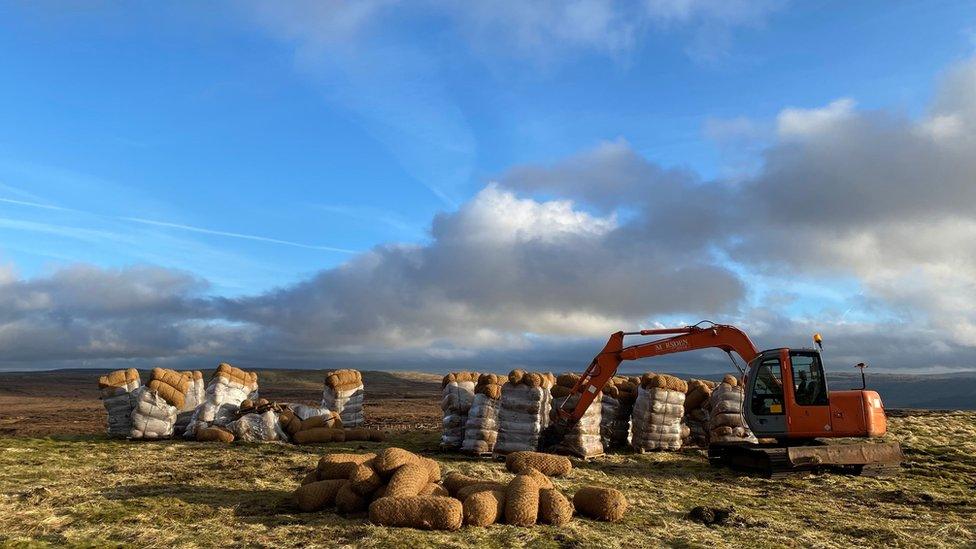
Fleet Moss restoration, The Great North Bog

Find BBC News: East of England on Facebook, external, Instagram, external and Twitter, external. If you have a story suggestion email eastofenglandnews@bbc.co.uk, external
- Published20 April 2021

- Published7 April 2021
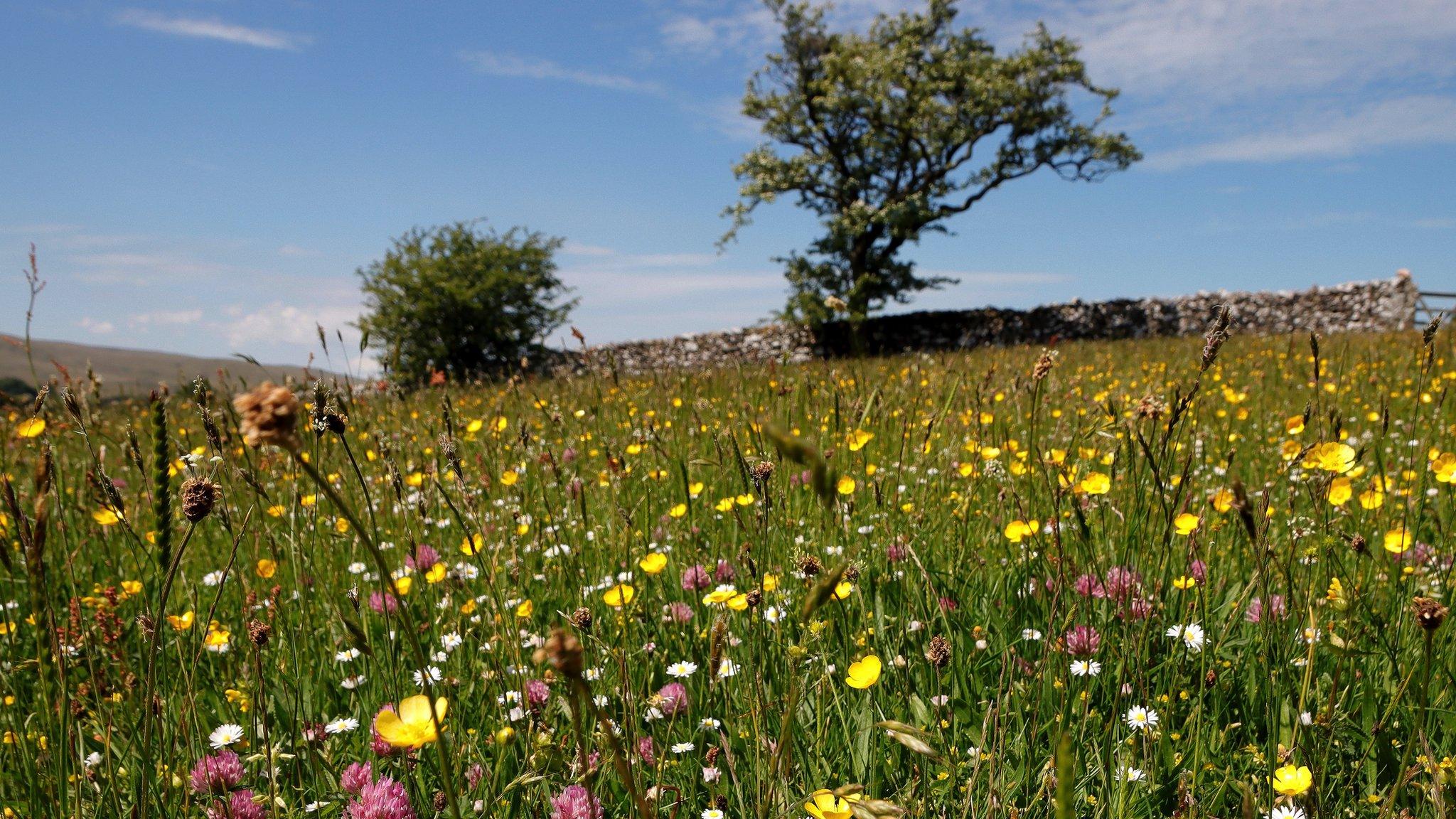
- Published12 February 2021
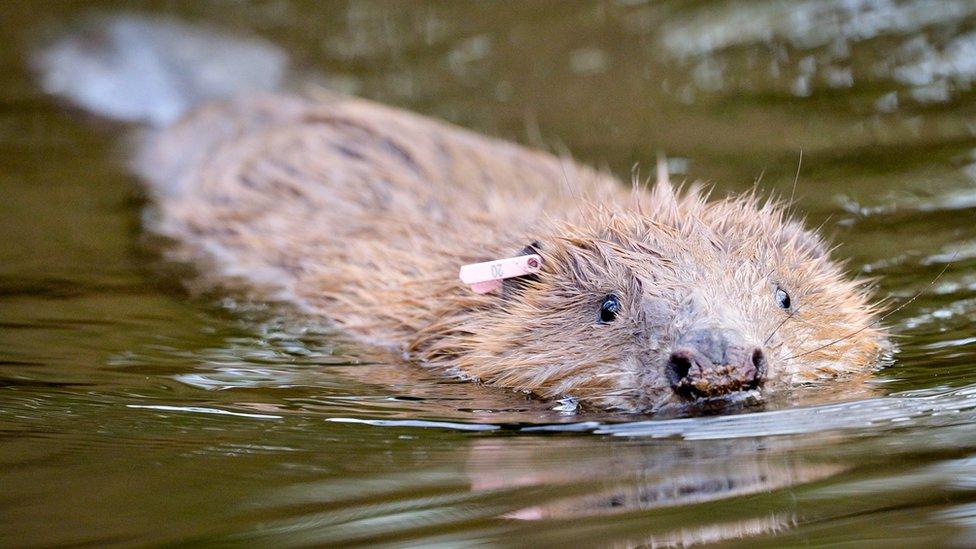
- Published17 March 2019
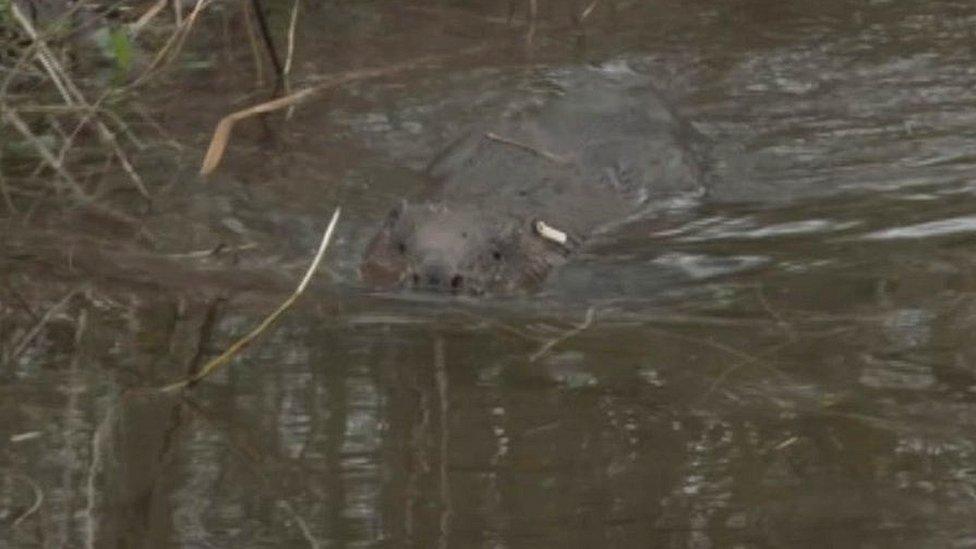
- Published30 June 2018
